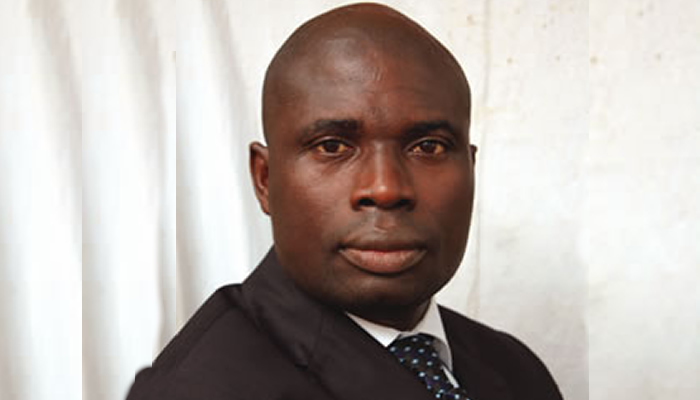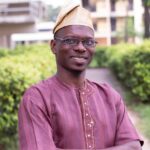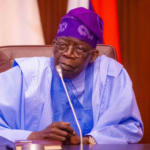
The Nigerian who reads issues based on religious and tribal sentiments would have to bear with me. I do not, and especially when it is politics or policy issues I don’t think like a journalist writing an opinion but like a political scientist. With a PhD in that academic field, I’m trained to base my analysis on what is verifiable. Numbers are verifiable and democracy is about numbers. To simplify what I’m driving at, I will give an illustration.
Last year, a religious group threatened to mobilise its members against a ticket and it did in many places. If the other religious group also mobilised its members in the South-West, Edo axis, North-Central, and far North to vote as one in the last election of the National Assembly’s leadership, we know which religious group would have occupied the first four most important posts. This is our reality, not that I advocate it. What transpired in the Senate election in particular which saw the emergence of Senator Godswill Akpabio showed that politicians across parties cooperated with the All Progressives Congress leadership to avoid a situation where the number 3 man would also be a Muslim.
What that occurrence in the Senate tells us immediately is that while we say we should take religion out of politics, we actually consider religion when we do things. If we don’t, but allow only the numbers to speak, there’s enough religious sentiment as well as other considerations trending in the Senate to get another contestant, Abdulaziz Yari, the seat. Now, here’s where I’m heading: The outcome of the Senate leadership election demonstrates that this nation always tries to balance things for the sake of unity, and I think we should appreciate this rather than have that strange attitude we see around us.
With a 63-46 result in the Senate presidency election, Akpabio did face a stiff fight. If a few more Muslim senators had sided with a fellow Muslim it could have been 55-54 in Yari’s favour. But they didn’t. I always advocate that party members should abide by party decisions. The Senate contest in which the ruling party succeeded in maintaining some balance in religious configuration was one illustration of the benefit of abiding by the party’s decision. If APC members didn’t, and other senators shunned national interest, a Muslim could have become number 3 and there would be nothing anyone could do about it. This possibility made it sink in for me, once again, the oppression of numbers. Leaders here have always ensured this doesn’t happen whenever they could. But does the reality of the potency of numbers sink in for most Nigerians?
I don’t think it does, otherwise, we won’t be given the attitude we get. In any nation where the ballot is the only decider, there can be oppression of numbers. It’s a democracy, but it’s oppression for the minority. You don’t like a policy but the majority makes what you don’t like to happen. You have to accept it. In Nigeria, the latest reality is that numbers can oppress when it comes to who the number 1, 2, 3, and 4 citizens are. Did we take note that the number 1-4 citizens could have come from only one religion? In order to avoid this situation, political leaders deliberately made a space for the other religion in the National Assembly leadership. I think this should humble Nigerians who threaten to mobilise members of a faith to ensure they occupy political offices. The numbers they wanted to mobilise couldn’t have given them the number one post in the Senate, instead the political leadership intentionally worked to achieve it. The cooperation of Muslim lawmakers with their Christian compatriots saved the day. The effort on the part of the political leadership, I reckon, many Nigerians don’t appreciate.
Take note that while many believe their religion or tribe should be in there somewhere in political positions at the state and federal level, their numbers aren’t strong enough to achieve this. They can get some positions if numbers are the only decider. But this is a reality that only the unsentimental person would consider. Now, I have always stated that nothing can justify military rule to me anywhere. One reason is that the military in power denies me the opportunity to ply my trade if I choose to function as a political scientist rather than a journalist. It’s also obvious that I’ll be less useful to the military than I will be to a politician who’s interested in a systematic analysis of relevant indices that can help them win.
Political scientists are at the forefront in advanced democracies where indices are appreciated as critical in winning elections. In Nigeria, such analysis, to the general populace who view politics from a prism of sentiments rather than facts, isn’t a useful endeavour. As a politician once said to me decades back, “Political science is theory; politics is different from what is taught in the classroom.” Of course, he meant the Nigerian kind of politics. This is a phenomenon I find fascinating to the extent that while all the numbers, the indices in Nigeria, that should inform how people vote to say one thing, the sentimental Nigerian expects outcomes to be otherwise. Such is possible only in a clime where the actual votes cast don’t count, but other measures such as vote buying and outright rewriting of results do. Where the votes cast count, no serious politician takes a step without an objective analysis and understanding of who their voters are, what informs how they vote, and how they may vote. In Nigeria, religion is one factor so numbers regarding which religion people belong to matter.
Such indicators were what I began to look at from May 2022 long before the primaries held. One thing I emphasized was the fact that if the ruling party produced a Muslim candidate from the South-West and because the North had a Muslim majority, it wouldn’t be politically beneficial if a northern Muslim didn’t appear on the ticket. I stated that those whose significant numbers would determine the results must be represented. It was the practical thing to do, the conclusion any political scientist would reach and advise.
This was a point other observers also began to make publicly just before the February 25, 2023 election. But it was an explanation I already gave starting from May 24, 2022, in an eight-part series titled, “Why Muslim-Muslim ticket will work” in ElRufai news magazine. To some, it was as though I was against a religion. Meanwhile, it was my job as a trained political scientist who should analyse on an empirical basis, not sentiments, that I was doing.
I stated that I find it fascinating that many Nigerians have scant regard for factual analysis. I do because I see tribes who are in the minority, their numbers cannot give them the governor in the state, it sometimes may not get them speakership in the state House of Assembly but they talk like their numbers alone can give them these posts. Without their votes, the majority tribe can sometimes elect the governor, yet these minority tribes conduct themselves politically in a way whoever is outnumbered shouldn’t. In some states, some minority tribes cannot get anything except the majority tribes deliberately concede it to them. Yet these tribes talk like they can make the sky come down politically. They don’t make careful political choices. They make themselves enemies of political leaderships that can help them both at the state and federal level. When bullies surround you, when the oppression of numbers stares you in the face, what do you do? Play politics that reflects your humble situation so as to benefit maximally, or you conduct your politics like you own the universe? As I always state, this doesn’t show tact, and whoever lacks tact, maybe we should say whoever lacks wisdom, will face the political consequences.
It’s the reality of politics, of political power, of numbers that determine who gets power. If you don’t have the numbers, and you don’t play politics such that it helps promote your cause, you can get oppressed, threshed. It’s the reality. In the Senate election which led to the emergence of Senator Akpabio though, patriotic politicians helped to sidestep oppression that numbers could have imposed. We shouldn’t forget.





